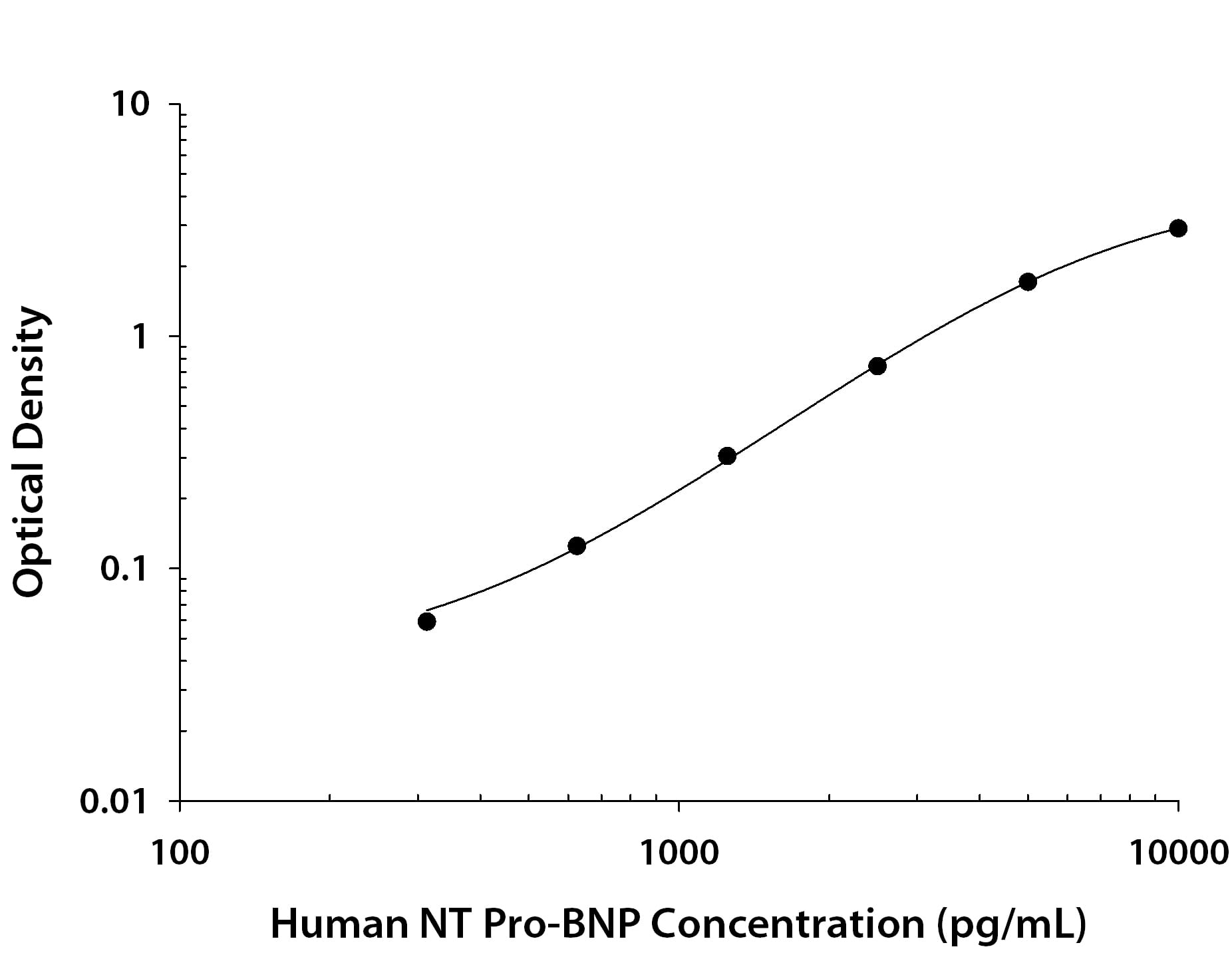Human N-Terminal Pro-BNP Antibody
R&D Systems, part of Bio-Techne | Catalog # MAB9769

Key Product Details
Species Reactivity
Applications
Label
Antibody Source
Product Specifications
Immunogen
His27-His134
Accession # P16860
Specificity
Clonality
Host
Isotype
Scientific Data Images for Human N-Terminal Pro-BNP Antibody
Human N-Terminal Pro-BNP ELISA Standard Curve.
Recombinant Human N-Terminal Pro-BNP protein was serially diluted 2-fold and captured by Mouse Anti-Human N-Terminal Pro-BNP Monoclonal Antibody (Catalog # MAB9769) coated on a Clear Polystyrene Microplate (Catalog # DY990). Mouse Anti-Human N-Terminal Pro BNP Monoclonal Antibody (Catalog # MAB9538) was biotinylated and incubated with the protein captured on the plate. Detection of the standard curve was achieved by incubating Streptavidin-HRP (Catalog # DY998) followed by Substrate Solution (Catalog # DY999) and stopping the enzymatic reaction with Stop Solution (Catalog # DY994).Applications for Human N-Terminal Pro-BNP Antibody
ELISA
This antibody functions as an ELISA capture antibody when paired with Mouse Anti-Human N-Terminal Pro BNP Monoclonal Antibody (Catalog # MAB9538).
This product is intended for assay development on various assay platforms requiring antibody pairs. We recommend the Human NT Pro-BNP DuoSet ELISA Kit (Catalog # DY3604-05) for convenient development of a sandwich ELISA.
Formulation, Preparation, and Storage
Purification
Reconstitution
Formulation
Shipping
Stability & Storage
- 12 months from date of receipt, -20 to -70 °C as supplied.
- 1 month, 2 to 8 °C under sterile conditions after reconstitution.
- 6 months, -20 to -70 °C under sterile conditions after reconstitution.
Background: BNP
Human BNP (brain natriuretic peptide) is a 3.5 kDa, secreted, nonglycosylated peptide that belongs to the natriuretic peptide family. It is the product of ventricular myocytes and bone marrow endothelial cells. BNP is synthesized as a 12 kDa, 108 amino acid (aa) prohormone with a 76 aa prosegment and a 32 aa mature (BNP) region. Both forms circulate, with the prohormone showing O-linked glycosylation that generates a 25-27 kDa glycoprotein. Glycosylation is suggested to stabilize the molecule. The proform also tends to noncovalently trimerize. In blood, 1-32 BNP is proteolytically processed into 3-32 BNP, with loss of Ser-Pro at the N-terminus. Human Pro-BNP is 29% and 50% aa identical to mouse and pig Pro-BNP, respectively.
Long Name
Alternate Names
Gene Symbol
UniProt
Additional BNP Products
Product Documents for Human N-Terminal Pro-BNP Antibody
Product Specific Notices for Human N-Terminal Pro-BNP Antibody
For research use only
